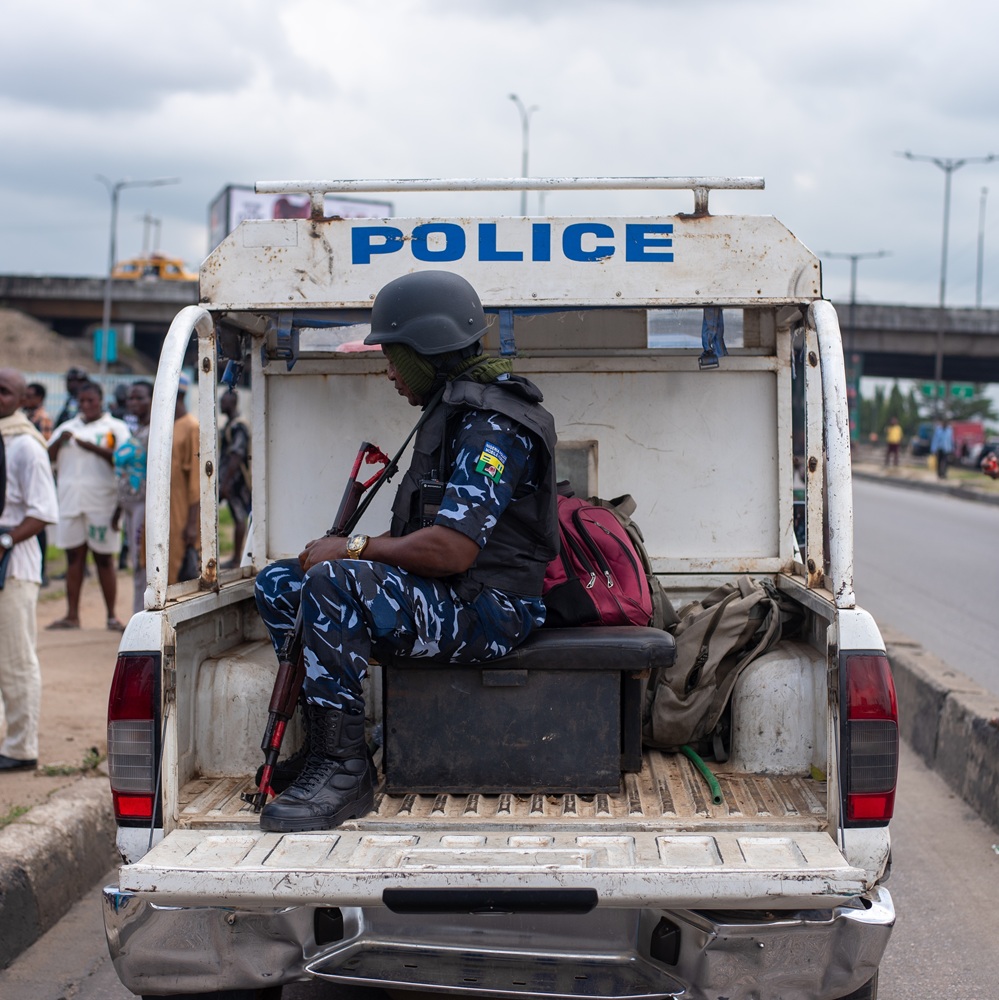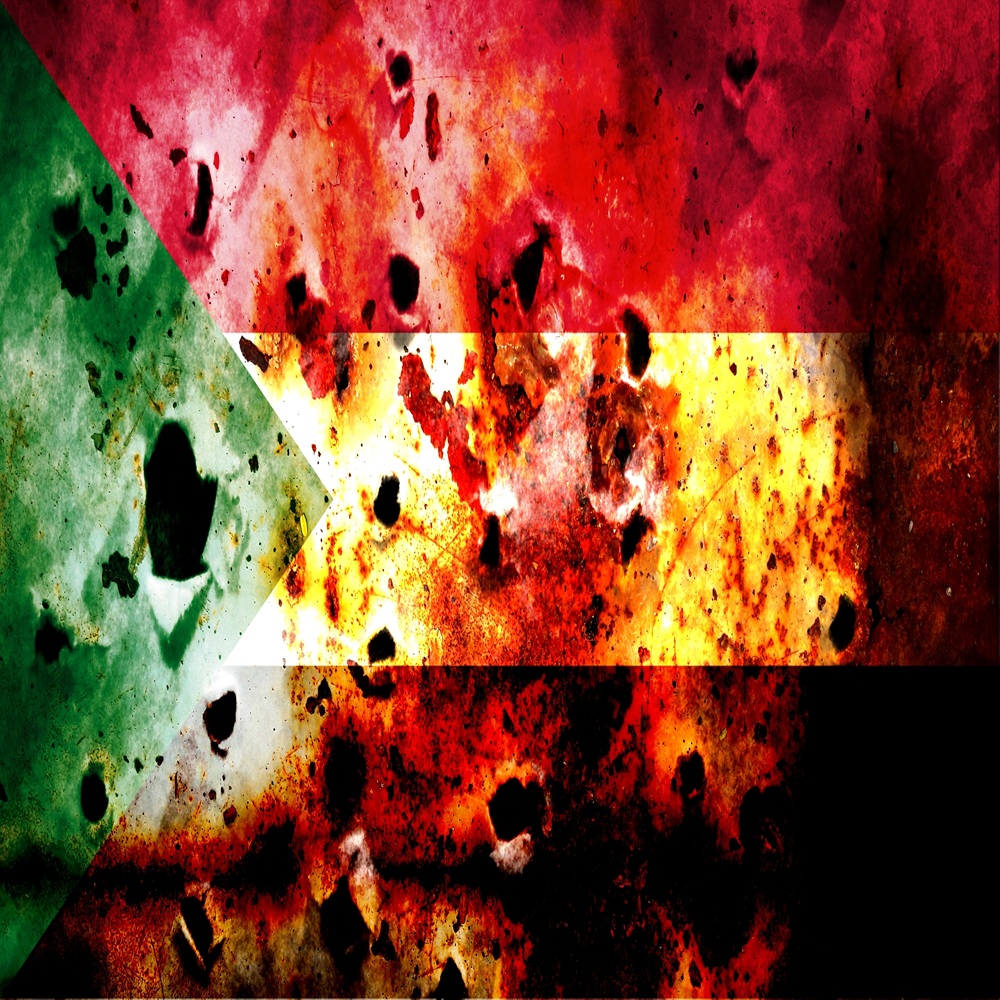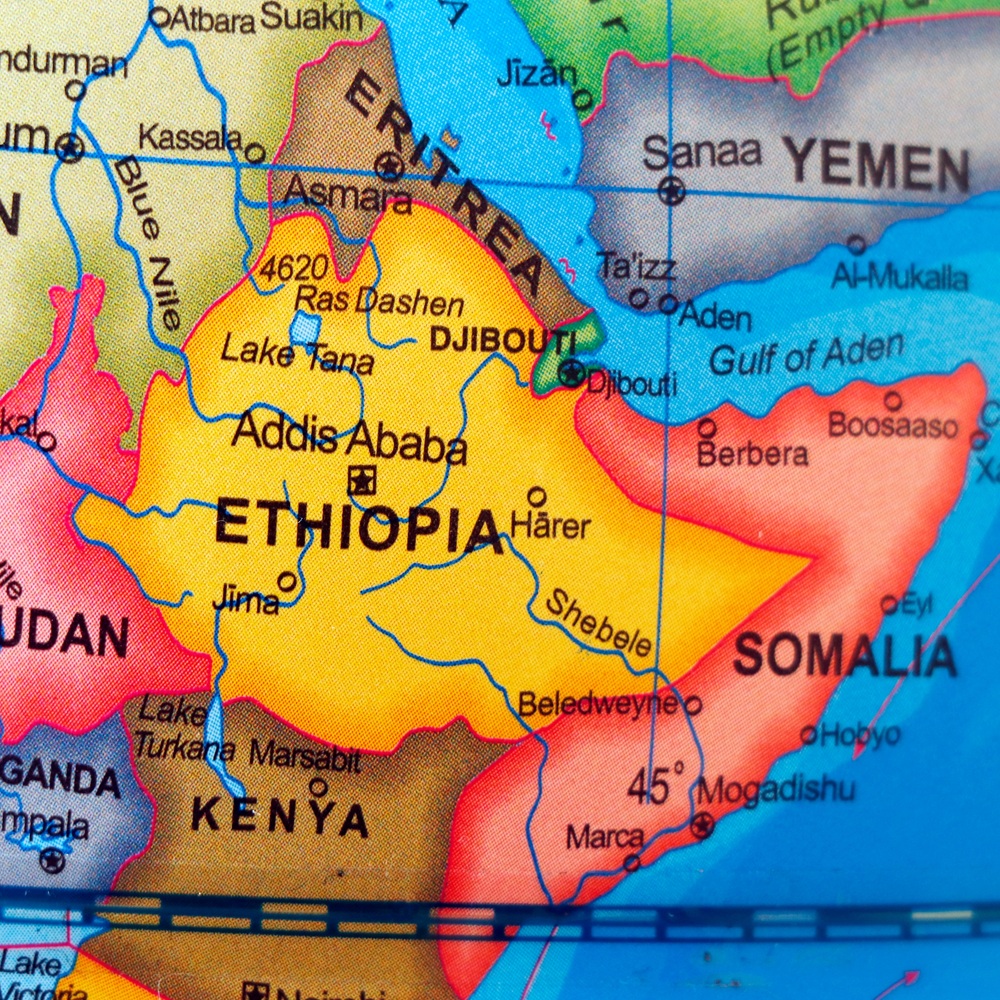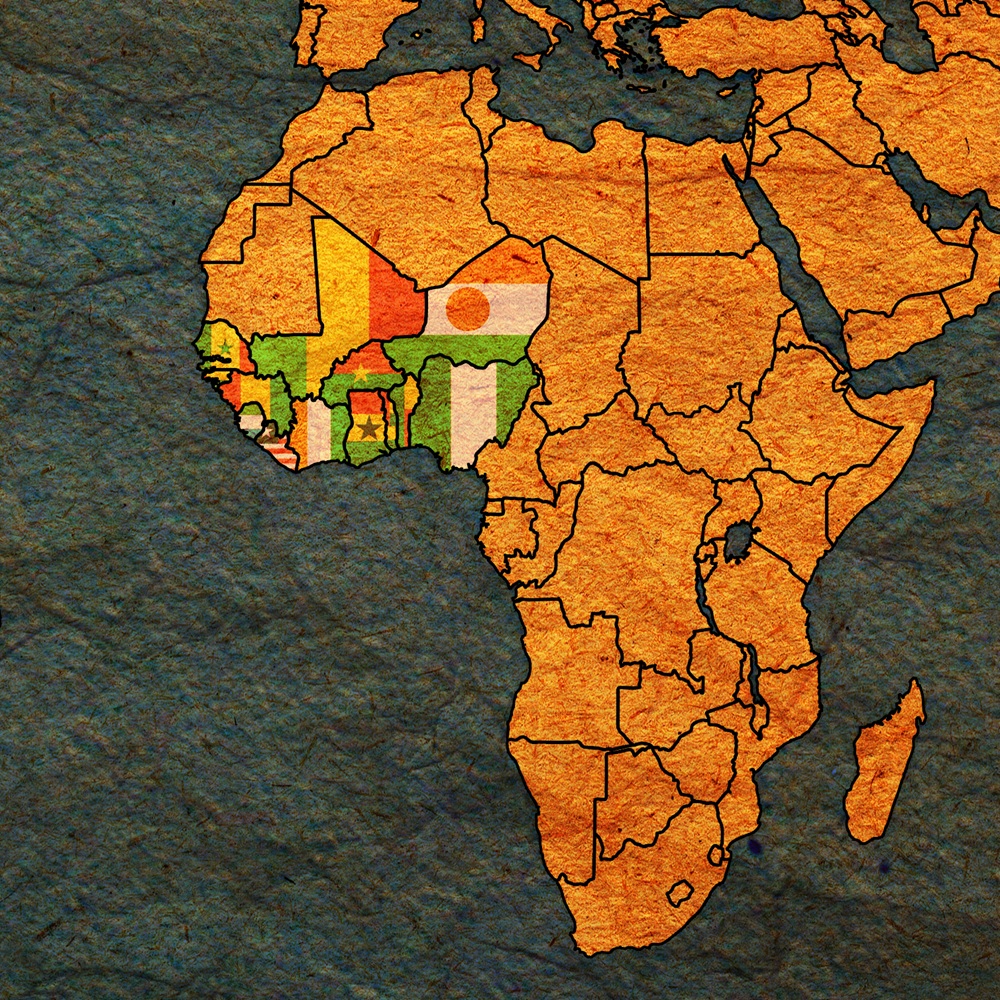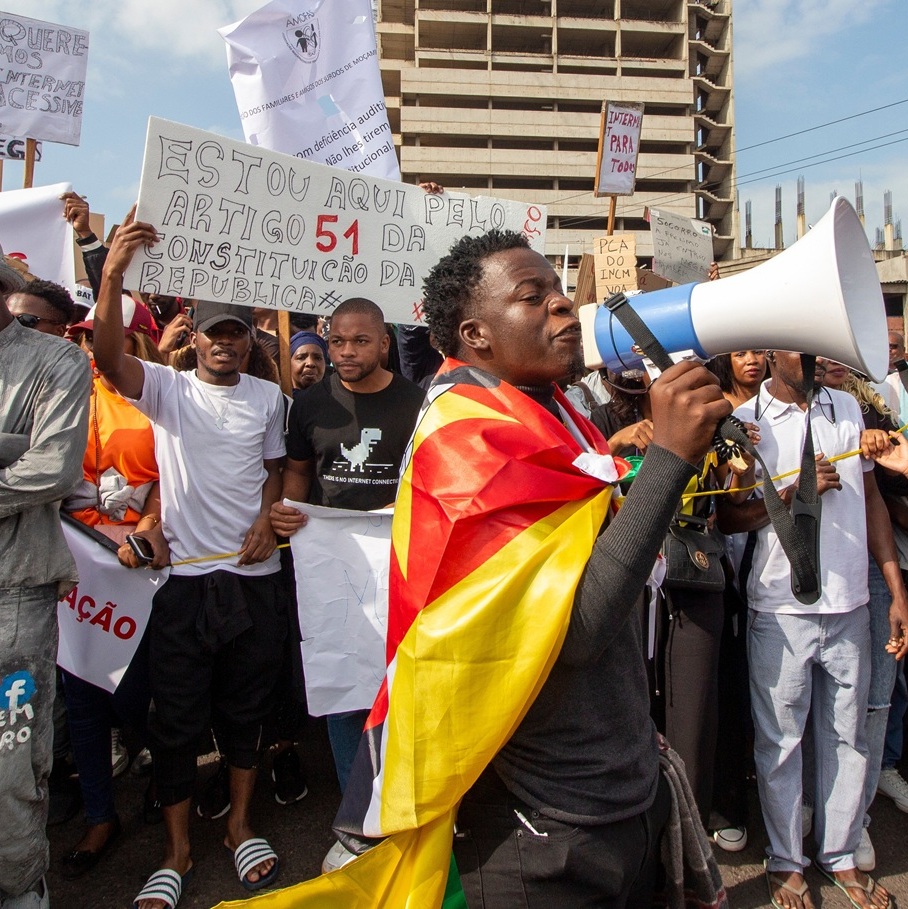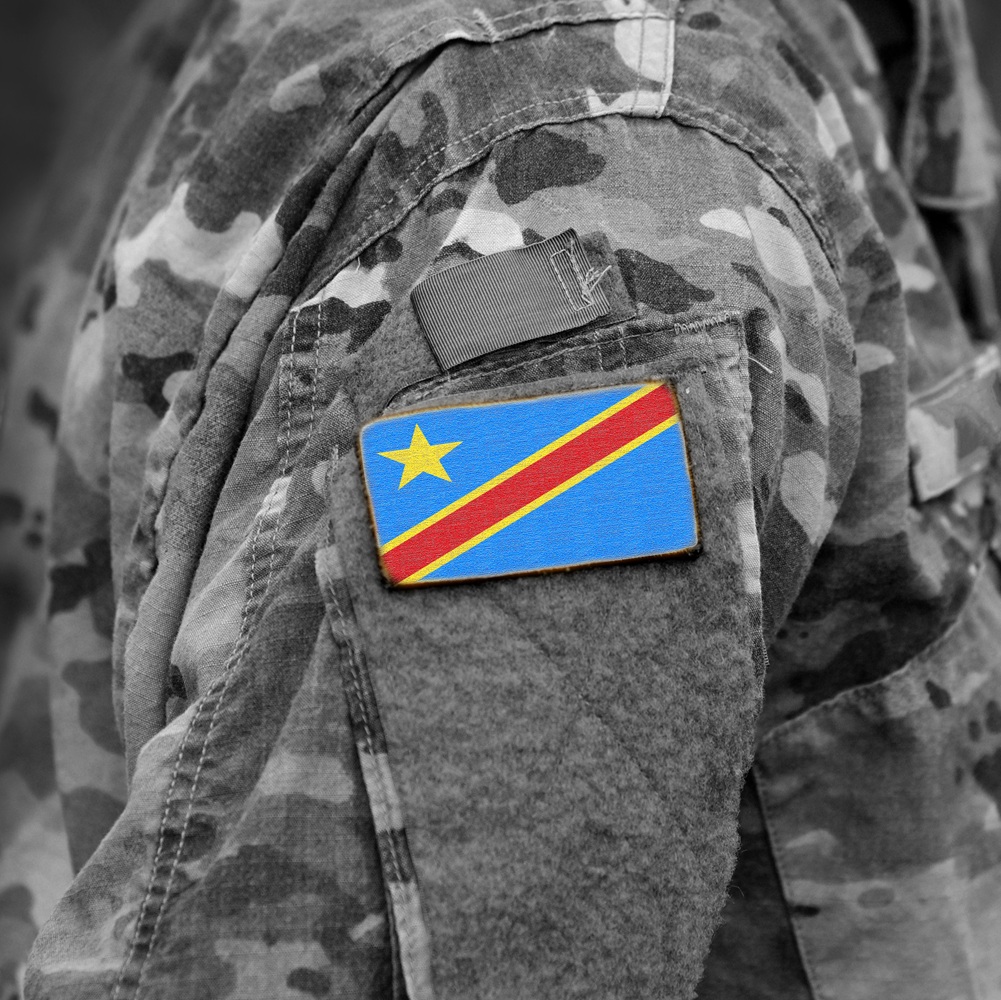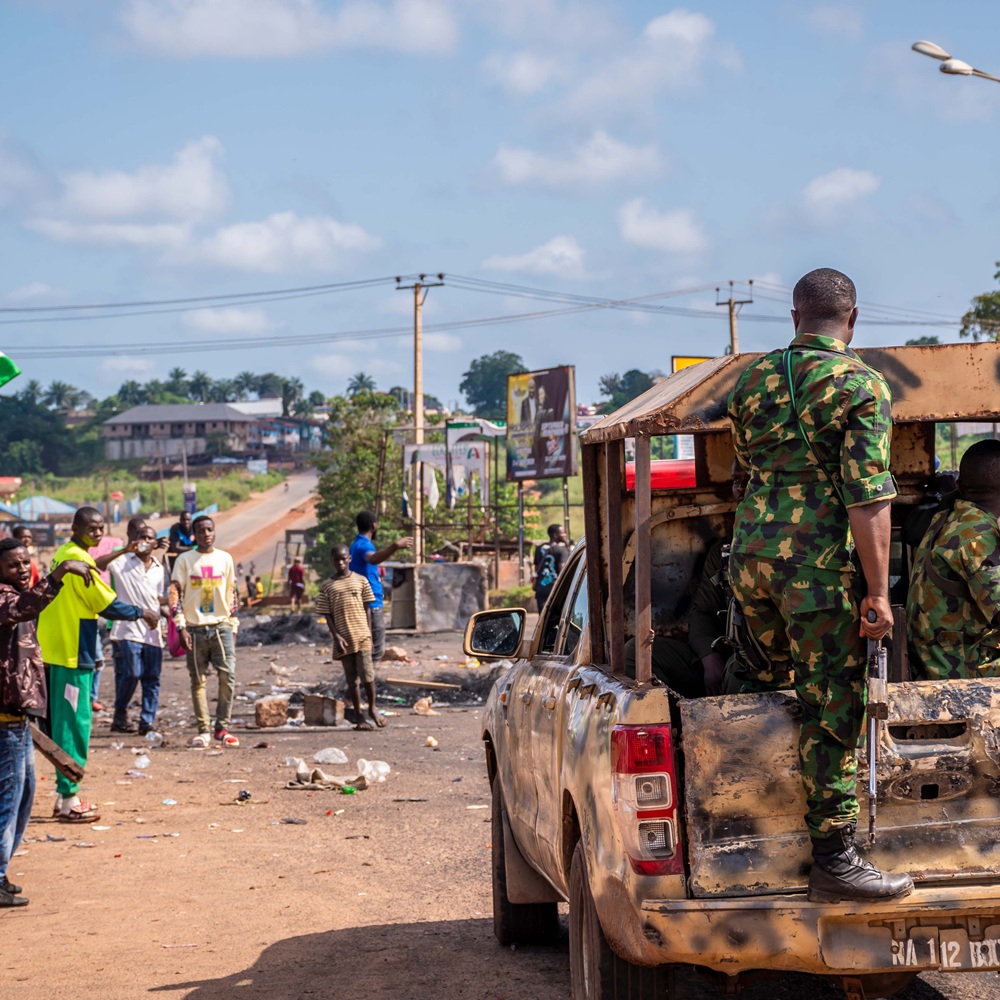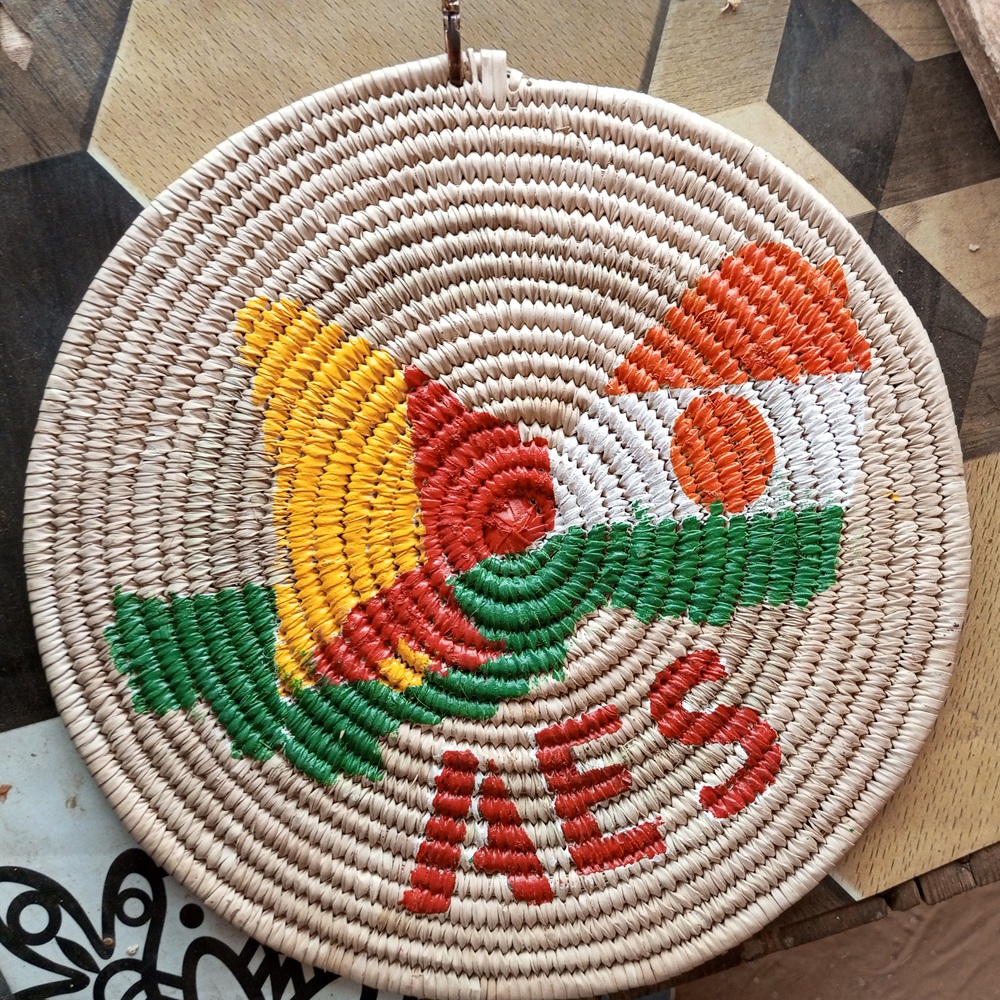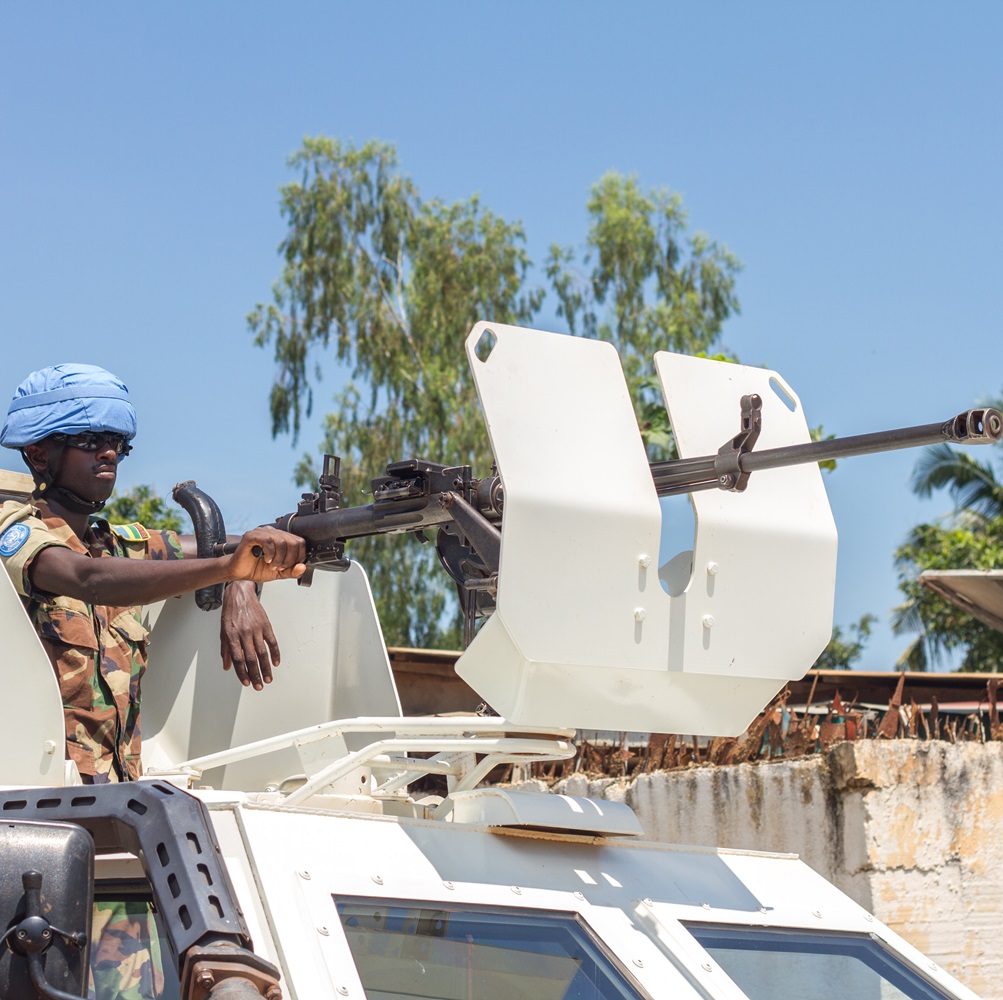Terrorism in Central African Republic: A Mosaic of State Fragility and Abnormality
by Chukwuemeka N. Oko-Otu , Kelechi Johnmary Ani
Leer en español
In Deutsch lesen
Gap
اقرأ بالعربية
Lire en français
Читать на русском
Abstract Religious extremism and radicalization have dominated the discourse on the causes of terrorism. However, little is written of other drivers of terrorism, such as economic and social deprivations, which could prompt religious groups to resort to terrorism. Scholars have sufficiently analyzed the imports of radical ideological and religious views on the emergence of terrorist groups such as Al-Qaida, ISIS, Boko Haram, and Al-Shabaab. By contrast, the Seleka and anti-Balaka terrorists of the Central African Republic introduces a new perspective to the explanation of terrorism. This essay uses the analytical framework of abnormality and State fragility to discuss the rise of terrorism in the Central African Republic. The essay argues that the historical precedent of State failure and weak institutions provides a catalyst that propels the use of terrorism by religious groups, the state and organized groups to demand political and economic dividends as well as a tool for power contestations and regime change. The study recommends multiple peacebuilding and building nation-building processes that will aid the transformation of the state. They include the transformation of the subsistence farming culture to a masses-driven cash crop economy for exportation, which will manage state fragility and promote civil-military counter-terrorism culture at the grassroots. IMPACT STATEMENT Terrorism is one of the greatest threats to human security and the survival of the state in the 21st century. Since the 9/11 bombings, scholars and policymakers have committed significant resources to unpack the causes and course of terrorism. In this paper, we look away from the prevailing drivers of terrorism such as religious radicalisation and offer another lens through which policymakers and framers of counter-terrorism operations can view the use of terrorism by religious groups, individuals, and non-state actors within a state. The paper argued that where a state is unable to fulfil its social contract with the citizens, such a state permits its citizens to use terrorism as a tool to derive the benefit which the state failed to provide. The paper draws instances from the trajectories of the Balaka and Anti-Seleka terrorist groups operating in the Central Africa Republic. Introduction Terrorism has become a fundamental problem for individuals, groups and the state to manage in different parts of the globe. The growing nature of terrorism has made terrorists strong actors in national politics and international relations. The contemporary world records the increasing influence of terrorists. This has become true in the relations between Israel, Palestine, Lebanon, Iran and other countries of the Middle East. Ironically, the multiplier effect is manifested in protest and politics across American universities and transportation of goods across the Red Sea and Indian Ocean. Studies on terrorism have linked the increasing use of terror by organized groups and States to ethnic, ideological, political, and religious factors (Schmid, Citation1998; Shultz, Citation1978). Essentially, the discourse on religiously motivated terrorism, although controversial and problematic, is prevalent particularly following the rise of the Islamic State of Iraq and Syria (ISIS), al-Qaida, and Boko- Haram (Jackson, Citation2012, p. 1). Elu and Price (Citation2014) linked terrorism in Africa to deprivation. Cilliers (Citation2001) argued that the root causes of terrorism and conflict in Africa include climate change, competition over resources, marginalization of the majority and global militarism. Nevertheless, critical terrorism studies have shown that more than the religiously and ideologically motivated use of terror by organized groups; the state also uses terrorism to drive its political objectives, especially against opposition groups (Lacqueur, Citation2001; Jackson et al., 2015). This study contributes to scholarship on how State failure and weak political institutions provide a catalyst that crystallizes the use of terrorism by religious and organized groups in demanding political dividends and power contestation. Okereke et al. (Citation2016) identify state fragility, porous borders, armed conflicts and ungoverned spaces as facilitators of terrorism in Africa. While Okereke et al. (Citation2016) study is in line with the position of this study, particular focus is on the unique nature of terrorism in CAR. It is this nature of state fragility that has weakened the ability of the state in CAR to provide other necessary societal conditions, resources, social amenities and developments that are needed to curb or eliminate terrorism. For instance, the inability of the state to provide and fund sustainable, functional education has created a society where people can easily be brainwashed to join terror sects. Again, the fragile nature of the CAR state has also undermined its ability to generate sustainable employment and a vibrant economy where a greater per cent of the citizenry could engage in small and medium-scale enterprises or engage in meaningful economic activities that would deny them the idleness that pushes them to terror activities. The place of ethnic, identity and ideological factors in driving terrorism cannot be neglected in CAR. This is because it is the fusion of state fragility and the advanced nature of ethnicity that drove the country into full-fledged terrorism as against mere ethnic crisis, thereby creating the absurdity that ethnic tension has become a driver of terrorism. The connection between economics, education and terrorism is deeply connected. In short, when the three factors are weak in a particular environment like CAR, and they become inflamed with religious fundamentalism, terrorism will be ignited in a very deadly form. The same factor played an active role in the mobilization of men and women who joined the Boko Haram terror sect in Nigeria (Ani kelechi et al., Citation2018). This is because the etymology of the word Boko Haram emanates from the traditional Hausa idea in the colonial era, which conceptualized and projected Western education (Boko) as a sin (Haram). Thus, the uneducated masses in North Eastern Nigeria did not desire further schooling to join a sect that was fighting for a hitherto historic ideology (Kukah, Citation2009). The position of Kukah (Citation2009) was also captured by Zenn et al. (Citation2013), who also linked local grievances to ideology (that was dominant in CAR) and internal politics of Nigeria in developing the study on terrorism. It should be noted that the concept of terrorism has evolved, and the precise meaning has remained contentious and exacerbated (Adibe, Citation2020; Ramsay, Citation2015). Puccetti (Citation2021) has argued that failing states create conditions for fostering terrorism. However, he has maintained that not all failing states experience the emergence of terrorism. Gaibulloev et al. (Citation2024) studied how terrorist groups survive in failed states. They maintain that in a state that is failing, terrorist groups easily survive. However, these studies did not particularly focus their analysis on the Central African Republic. The structural weakness and failure of the state have remained the major drivers of terrorism in the Central African Republic. The central objective of the study is to evaluate the place of state fragility and abnormality in the development of terrorism in the Central African Republic. The key research question is, to what extent is terrorism in the Central African Republic a function of state fragility and abnormality? The situation in the Central African Republic (CAR) represents a new dimension to the motivation for terrorism among organized groups. The CAR is one of Africa’s most economically viable states, but it repeatedly scores at the bottom of global development indices (World Bank, 2020: Boas, Citation2014). Economic and political development in the country remains, at best, a paradox because the poverty rate, inequality, and underdevelopment in the country, do not correlate with the country’s rich natural and human resources. With large-scale unemployment, poverty, terrorism, insurgency, maritime piracy, trafficking, increased insecurity, and delayed economic and political reform and integration, the CAR presents an example of an abnormal and fragile state in Africa. The absence of a standing state security apparatus means that the state does not have a monopoly on national force and security. As a result of weak political institutions, contestation to State power and regime change is a function of a ‘group’s ability to exert a higher degree of terror (Crescent, 2018, p. 8). It is this failed political, economic and security environment that triggers the proliferation of terrorism in the CAR. The study was developed using secondary data sourced from journals and books. The analysis of earlier scholars was sourced thematically and used to enrich the content of the study. This paper is significant because it breaks away from the simplistic explanation of terrorism in CAR as a mere religious and ideological phenomenon. It interrogates how an impoverished population can possess the capability for terrorism and contributes to the argument of state-sponsored terrorism. The paper argues that the insufficiencies of State institutions, a poor economy, and a security apparatus in disarray permit the use of terrorism by an impoverished population to demand political accountability and change. The argument of the paper is structured in two parts. The first part provides an overview of the CAR, clarifies and critiques the concepts of terrorism, state fragility, and abnormality, and the second part analyses the linkages between terrorism and state fragility and abnormality in CAR and concludes. Conceptual clarification terrorism versus state fragility and abnormality terrorism There is no precise definition of the concept of terrorism. The varying use of the concept by scholars, policymakers, and observers to create the desired political effect, the attempt to determine what fits and does not fit as terrorism, and efforts to distinguish terrorism from other forms of political violence make the concept difficult to define (Shimid, 1998, Weinberg et al., Citation2004). As a ‘contested ‘concept’, terrorism has been variously defined. Lacqueur (Citation1999) has argued that there has been a radical transformation, if not a revolution in the character of terrorism. The new terrorist represents a very different and potentially far more lethal threat than the familiar traditional terrorist groups (Hoffman, Citation1999). Terrorism covers the manipulation of fear to attain defined goals. Traditionally, terrorists target the killing of great political figures to ignite massive reactions like the killing of Archduke Ferdinand. However, during colonial rule in Africa, the imperial administrators were increasingly accusing Africans who challenged their exploitative rule as terrorists. This was the case with Nelson Mandela in South Africa, and the Zikist movement in Nigeria, among other nationalist movements that employed radical ideologies towards decolonization. However, the reality is that terrorism and terrorists change in form, scope and dynamics. They are more organised, strategic, and focused on unleashing harm and threats to individuals, groups, and states. While several scholars present terrorists as men and women who are irrational in their decisions, the reality is that terrorists are radicalized to rationally manipulate fear and violence to achieve certain goals that are set out by the protagonists of the terror onslaught (Ani & Uwizeyimana, Citation2021). The complexity in conceptualizing terrorism in CAR and many parts of Africa like Nigeria made Ramsay (Citation2015) to argue that terrorism should not be defined. Okereke et al. (Citation2016) identify state fragility, porous borders, armed conflicts and ungoverned spaces as facilitators of terrorism in Africa. Notwithstanding, Alex Schmid gave a popular definition of the concept. According to him, Terrorism is an anxiety-inspiring method of repeated violent action employed by (semi-) clandestine individual, group, or state actors for idiosyncratic, criminal, or political reasons, whereby—in contrast to assassination—the direct targets of violence are not the primary targets (Schmid, 1988, p. 28). Furthermore, the above definition captured the orthodox perspective of terrorism as an act of State and non-state actors. Nonetheless, the definition follows the traditional explanation that terrorism is ideologically, religiously, and politically motivated. It undermined how weak political and economic institutions in a State could permit the use of terrorism to demand social and economic development and reforms by groups (Ani & Osisioma, Citation2014). Such uses of terrorism often have a clear target selection. In such situations, the persistent use of terrorism is aided by weak political and economic structures and intended to coerce the government to improve the economic and social life of the people (Ani & Chukwu, Citation2014; Anikelechi et al., Citation2018). In turn, the government uses terrorism in the absence of strong state security institutions for counterterrorism operations (Ani & Uzodike, Citation2015). Similarly, the absence of a strong political and state security institution permits the sponsorship of terrorism by external actors for their economic interests (Mutambara et al., Citation2022). Evidence of this type of terrorism is found in the Central African Republic, where religious groups form a coalition and use terrorism to demand economic and political dividends from the government. The next section of the essay will conceptualize State fragility and abnormality as a driver of terrorism in Central Africa. The weakness of the state, therefore, creates a sustainable environment for terrorism to strive. When the state is weak, and the machinery of the state cannot effectively deliver on its expected targets of providing the needs of the masses and guaranteeing the security of lives and properties, it naturally creates a lacuna that manifests in what is generally referred to as the ungoverned spaces. This is a collection of areas that are not under active state control, experience partial state control, or have a relatively weak presence of the rule of law (Bernard & Daful, Citation2021; Gov.UK, n.d.). It is this causal relationship between the nature of the state in the Central African Republic and the rise of terrorism that worsened the conditions for the security of lives and properties in the country. These ungoverned spaces are further occupied directly and indirectly by terror actors. Moreover, from these ungoverned space, they begin to launch their influence into other parts of the country and beyond. Downey (Citation2021) maintained that the United States’ war on terror did not deter ungoverned spaces in Africa. State fragility and abnormality As with terrorism, the concept of state fragility is complex and lacks a precise definition. Although a novel concept in development policy, the concept has been variously defined. The United Kingdom Department for International Development uses the term to describe the failure or lack of will and capacity by a State to perform its core functions and responsibilities to the citizens (DFID, 2005). According to the World Bank, fragile States are low-income countries scoring below 3.2 and below on the Country Policy and Institutional Assessment (CPIA) ratings. It applies to states that have higher tendencies to fail in their economic, security, and political obligations to their citizens (Ferreira, Citation2015, p. 1). As a result, there is a prevailing atmosphere of poverty, unemployment, underdevelopment, insecurity, weak institutional frameworks, lack of territorial control, and a high propensity to conflict and civil war (OECD, Citation2012, Citation2014). A state is described as fragile when there is an increase in poverty and economic decline, with State institutions incapable of handling civilian grievances arising from inequality in the distribution of wealth, representation, and access to public institutions (Vallings & Moreno-Torres, Citation2005, p. 7). It should be noted that these main characteristics of state fragility are widespread in Somalia, Mali, Nigeria and CAR. These states share widespread poverty as a visible status of the economy among their citizens. Again, the nature of their insecurity is widespread within the sovereign state. Unfortunately, the managers of these states focus on advancing their exploitation of state resources, thereby creating opportunities for Al-Shabab, Boko Haram and Al Qaeda in the Islamic Maghreb to advertise their quest for followership using social media and, in some cases, declaring dominance over some specified ungoverned spaces within the country (Mutambara et al., Citation2022). The difference among these sects is that Al Shabab survives on sea piracy in the Gulf of Guinea more than any other source of economy when compared to the terrorists in CAR (Anyika et al., Citation2022). Again, while Boko Haram and Al Shabab make use of social media to advertise and advance their network, economy, training and resources with international jihadi fighters and terrorist groups, terrorism in CAR is relatively domesticated (Anikelechi et al., Citation2018) In the Central African Republic, the income level of the masses remains low due to a weak national economy. There is a lack of bubbling production units and companies that could enhance mass production for commercial purposes and export earnings in general. The prevailing atmosphere of poverty and widespread unemployment and underemployment ensures that the society is prone to the negative influence of foreign terror sponsors as well as exposes the masses to the culture of exploitation by those who use their minimal resources to attract the frustrated poor and unemployed into the world of terrorism. The nature of the national geography also gives an advantage towards the expansion of insecurity and terror attacks within the country. Similarly, the concept of State abnormality is novel; the word is used in this paper to describe a State with full prospects and potential in terms of human and natural resources for development and economic growth but lacking in the human initiative and capacity to drive necessary developments and growth. In other words, the natural and economic resources in an abnormal State do not match the level of progress in all ramifications. An abnormal state is, therefore, a State riddled with developmental paradoxes. It is worth noting that all fragile and abnormal states are prone to and riddled with conflicts and threats of violence (Eugene, Citation2020). Moreover, scholars do not agree on the exact indices or parameters for measuring State fragility and abnormality. There is controversy over how the concept is operationalized and who sets the parameters for measuring fragility and abnormality (Ferreira, Citation2015, p. 2). However, Besley and Persson argue that in a fragile and abnormal State, there is the pathology of State ineffectiveness in enforcing contracts, protecting property, providing public goods and raising revenues or political violence either in the form of repression or civil conflict or even both pathologies are present at the same time (Besley & Persson, Citation2011). Similarly, the World Bank uses the CPIA ratings based on Economic Management, Structural Policies, Social Inclusion and Equity Policies, and Public Sector Management and Institutions to measure fragile States. Moreover, the Center for Research on Inequality, Human Security and Ethnicity observed three major features of fragile States – authority, service, and legitimacy failures (Stewart & Brown, Citation2009). Nonetheless, an overview of the working definitions of different organizations and agencies proposed above reveals three basic variables in measuring fragile and abnormal States. This paper has classified these three variables as legitimacy, capacity, and security gaps based on the core functions of the state. For this paper, the fragile state and abnormality of the state will be measured based on the existence of some legitimacy, capacity, and security gaps in the Central African Republic. Discussion on Terrorism in CAR: The State Fragility and Abnormality Linkages Geographically, the Central African Republic is located at the centre of the African continent. The country’s current borders were established by the French during the scramble and partition of Africa in the late 19th century. Because of its central location, the CAR shares boundaries with multiple countries within the Central African region of the African continent; these countries include Chad, Cameroon, Congo Republic, Democratic Republic of the Congo (DRC), South Sudan, and Sudan. The country covers an area of 622,984 sq. km with a population of about 4.7 million (BBC Africa, 2018). The country is made up of over 80 ethnic nationalities of varying sizes in both land areas of concentration and number and with distinct languages (Alusala, 2017, p. 11). Economically, the Central African Republic is endowed with natural resources, including uranium, oil, gold, diamonds, and timber, as well as a huge potential for hydroelectric power. However, these resources have not been properly harnessed, and the little activity that exists does not generate much income for the state as it is dominated by foreign powers that align with some privileged politicians to exploit them for their selfish interests (Knoope & Buchanan-Clarke, Citation2018, p. 4). The country came under colonial domination in 1899 and attained political independence from France on 12 July 1960 (Alusala, 2017, p. 13). Statistics show that since 2013, the country has witnessed over 29 terrorist activities by both state and non-state actors resulting in over 1764 deaths and about 851 injured (World Data, Citation2020). The legitimacy gap is a key feature of fragile and abnormal States. Legitimacy gaps describe the institutional instability undermining public decision-making processes’ predictability, transparency, and accountability (Andersen & Engberg-Pedersen, Citation2008). Legitimacy gaps exist in a state where the electoral process that produces political leaders is compromised, tele-guided, or subverted, leading to the emergence of unpopular leaders who execute elitist policies. In such a system, the pervasive inconsistency in the process of regime change permits the use of force, violence, or threats in the acquisition and consolidation of State power. As a consequence, compliance with the state is achieved by force, violence, or threat of it (Vallings & Moreno-Torres, Citation2005, p. 9). The use of violence guarantees that the state maintains an advantage over other armed groups and legitimizes its grip on power (Besley & Persson, Citation2011). The use of terrorism by organized groups and the state in CAR is linked to the fact that there is no clear electoral approach to acquiring State power. At independence in 1960, the government of David Dacko institutionalized the one-party system to maintain its grip on power and whittle down opposition groups. This gave rise to pockets of political crises and protests, which were met with autocracy, kidnapping, and torture of protesters by State security agents (Le Vine, Citation1968, p. 12). Similarly, the second President, Jean-Bidal Bokasso, dissolved the parliament in 1976 and declared himself Emperor for the life of the CAR. His regime was characterized by torture, assassination, and oppression of political opponents, including the murder of over 100 demonstrating school children. Furthermore, when General Andre Kolingba seized power in 1981, he used State machinery to suppress and detain oppositions groups that supported a democratic system in the country. This use of force, violence, and intimidation by leaders to attain or sustain political power created the legitimacy gap that triggered terrorism by the Seleka and Anti-Balaka coalitions in the CAR. Consequently, legitimacy gaps in the country precipitated external/State sponsors of terrorism in CAR. For instance, the French government provided arms and support for the regime of Jean-Bidal Bokasso, who was willing to cut off economic and political relations with China and subsequently for the Anti-Balaka groups against the Selekas in 2013 following the overthrow of the Balaka-led government. Similarly, neighbouring countries like Chad and Sudan continue to support rebel leaders who agree to protect their economic interests (Congressional Research Group, Citation2024). For instance, in 2003, Chadian President Idriss Déby provided support for the Anti-Balaka leader Francoise Bozize, who overthrew Ange-Felix Pattasse. However, in 2013, Deby switched his support for the Seleka leader Michel Djotodia to replace Bozize. Consequently, in 2014, Derby used his militia to stand down the government of Djotodia and airlifted the entire CAR government to N’Djamena, where Catherine Samba-Panza was elected as the President of the transitional government (Lombard, Citation2014). The externalization of legitimacy in the CAR was effectively perfected during the colonial era. There was no unified system of political administration in CAR under the French colonial administration. The French leased the territory to private companies to run for their profit (Marima, Citation2014). In the absence of a unifying force for all peoples within the colony, colonial resistance was coordinated along ethnic lines, leading to the emergence of a multifarious coalition of ethnic groups who struck deals with concessionary companies to replace the French colonial officials (Knoope & Buchanan-Clarke, Citation2018). By leasing out different parts of the country to private companies to administer, the colonialists had given room for the privatization of state force, interference by foreign powers, and the proliferation of different armed groups with different ideologies of independence. The system has continued since independence and has created what Knoope and Buchanan-Clarke described as: A system whereby CAR politicians are often more concerned with the personal relationships they hold with these outside sources of power than with fulfilling their social contract with CAR citizens. This has resulted in a weak state that has little legitimacy to govern beyond the capital. (Knoope & Buchanan-Clarke, Citation2018). Notwithstanding the introduction of a multi-party system in 1993, successive leaders of the country have failed to sustain the system as a legitimate means of political transition. Rather, it was characterized by meeting the personal ambition of the leaders, intent on staying in power, destroying the opposition, and ensuring their political interests (Siradag, Citation2016, p. 5). Consequently, a well-functioning state must possess the capacity to deliver certain public goods that improve the lives of its citizens as well as provide infrastructure that stimulates economic growth and development (Stewart & Brown, Citation2009). Fragile and abnormal states are remarkable for their lack of capacity to stimulate economic growth and development and a high dependence on foreign aid (Besley & Persson, Citation2011). Capacity gaps in the Central African Republic can be seen from the inability of the government to provide basic amenities for its citizens. Since the country gained independence in 1960, successive governments have failed to establish state institutions that provide social, economic, and political dividends to the people (Sıradag, 2017, p. 1, International Crisis Group, Citation2017). Over half of the country’s 4.6 million people depend on UN humanitarian aid, the highest recipient of UN aid destinations globally (Knoope & Buchanan-Clarke, Citation2018). The public sector in CAR since independence is characterized by deplorable working conditions, absence of educational opportunities for children, large-scale corruption, mismanagement of public finances, irregular payment of salaries, a lack of sanitation, absence of educational opportunities for children, and permanent insecurity (Boas Citation2014. This situation not only questions the capacity of successive CAR governments but also increases the disillusionment towards government officials. Amidst economic resources, the country ranks as one of the least developed and poorest in the world. Per capita, the national income is a meagre $774, and about 70 percent of the population lives below the poverty line (Trading Economics, Citation2018). A report by Conciliation Resources showed that the country’s debt tripled to 1.8 percent of GDP between 2010 and 2011. The study further revealed various anomalies in the execution of projects, ranging from corruption and embezzlement of project money to compromised accounting procedures and a lack of vigilance. The CAR is one of the poorest countries in the world. In 2016, economic growth in the country slowed from 5 percent to 4.4 percent (World Bank, 2016). Moreover, only 10 of the 460 industries that operated in the country in the 1970s are functional. The only university in the country with a capacity of 1000 students has more than 20,000 students (Paul-Crescent et al. Citation2018, p. 8). These negative functional indicators suggest that the country is not just fragile but also abnormal because it lacks the initiative and capacity to harness its resources. Moreover, the use of terrorism by the Seleka and the Anti-Balaka groups is not aligned with religious identity but with the government’s inability to bridge the socio-economic inequalities in the country (Conflict Scan, Citation2017, p. 3). Successive governments in the country perpetrated inequality in the distribution of infrastructure between the Muslims who dominated the northern region and the Christians who dominated the southern region. Economic marginalization and neglect suffered in these regions provided a background for the use of terrorism by the northerners under the Seleka coalition to demand a fair share of the national resources and control of State power. For instance, the provinces of Vakaga and Haute-Kotto suffered marginalization and neglect as successive governments failed to establish schools, hospitals, roads, and general infrastructure. This led to the emergence of rebel groups who began to launch an attack on government facilities, taking hostages and seeking to take over power to protect their interests (International Crisis Reports, 2017). Furthermore, the replacement of the National Armed Forces with private security created security gaps in the CAR, which permitted the continued use of terrorism by both the State and organized groups (Global Security, Citation2020). When President Bozize came to power in 2003, he established a presidential guard made up of Chadian mercenaries to protect his government. Subsequently, successive governments have continued to maintain private securities at the expense of the national armed forces. The absence of a national security agency for the protection of the lives and property of the citizens means that the state is not the only legitimate monopoly of force. By maintaining private security, the state can carry out successful acts of terrorism against opposition groups. The anti-Balaka group was one of the groups mobilized by the Bozize government in 2003 to provide security for rural communities (CAR Briefing, Citation2014). However, following the rise of the Seleka coalition, he reactivated them in 2013 to protect his administration and help keep him in power till the general elections scheduled for 2016 (Kah, Citation2014, p. 9). Anti-balaka terrorism resulted in the ethnic cleansing of members of the Seleka coalition and created massive refugee crises and internal displacement (Amnesty International, Citation2014). This privatization of State security paved the way for foreign intervention and the upsurge of militia armed groups who perpetrate violence to secure State power, unleash vendetta as well as protect their members. The composition of these groups is constantly changing but is often made up of self-defence militia, highway robbers, and former members of the security and defence force. Between 2002 and 2017, 14 armed groups were identified (International Crises Group, 2017). Similarly, France, Chad, and Cameroon, among other foreign powers, have at one time or another, armed one group or another to protect their geo-strategic and economic interests in the CAR (Boas Citation2014),). In 2013, following serial bombings and killings which resulted in the death of over 2000 civilians, the Seleka, backed by Chadian and Sudanese mercenaries, under Michel Djotodia usurped State power from the Christian-led government (International Crisis Group, Citation2017, p. 7). In a retaliatory move, the Anti Balaka began its reign of terror to counter the Seleka coalition. The Anti-balaka group did not start as a religious group but emerged out of the need to provide security to the population; they were motivated by their thirst for revenge (Kah, Citation2014, p. 36). The absence of government security forces in the peripheral and geostrategic areas of the country including Bocaranga, Ndassima, Yassine paved the way for rebel groups to control the rich mineral resources of the region while using revenue generated from the resources to finance their operations (African Union, Citation2018; Lombard, Citation2014). Added to failed security architecture is the question of State dispensation of justice and equity and asses to the State justice system. The State justice system has been subverted and hijacked by some members of the state who maneuver and manipulate the system to serve their selfish interests and intimidate opposition groups (Kah, Citation2014, p. 37, Knoope & Buchanan-Clarke, Citation2018). Basic institutions such as the Office of the Prosecutor, the tribunals, the gendarmerie, the Police, and the prison services are not operational in most parts of the country (Amnesty International, Citation2014). Conversely, it is imperative to appreciate the religious undertone of insurgency in the CAR. Since the escalation of the conflict in 2013, religion has been used as an instrument to radicalize members of both the Seleka and Anti-Balaka groups. The dynamics of terrorism have drawn the lines between Muslims and Christians in the country. Up till 2013, when the Seleka coalition (dominated by the Muslims) overthrew the government, the country was under a Christian leadership that paid little attention to the development of the Muslim-dominated Northern region of the country. Only two Muslims have been in parliament since the independence of the country (Knoope & Buchanan-Clarke, Citation2018, p. 19). This painted a picture of political exclusion and economic marginalization by the Christians. These grievances were easily mobilized by the Seleka leader Djotodia during the coup of 2013. The rise of the Anti-Balaka groups and the consequent bombings of Muslim centers such as Mosques and schools have added to the narrative of religious terrorism (Union Africane, Citation2018). The presence of Al Qaeda in the Islamic Maghreb (AQIM), Boko-Haram, the Islamic State, and Al-shabaab increases the risk of infiltration and violent Jihad by the Seleka groups (Knoope & Buchanan-Clarke, Citation2018, p. 19). Moreover, although the parties involved in the use of terrorism are drawn along religious lines, they do not claim to establish a state along religious line. Their use of terrorism is motivated by the weak political institutions and economic inequalities which are core features of fragile States (Besley & Persson Citation2011). In its manifesto, the Muslim Seleka coalition had three mandates: to topple the Bozize regime, take control of the state, and seize the natural resources (International Crisis Group, Citation2017). The anti-Balaka, on the other hand, is determined to maintain its grip on power by attacking Muslim civilians and bombing Muslim villages. These two main rebel groups have splintered into several movements over time. Some sources put the number of armed groups currently operating in the country at about twenty (Union Africane, Citation2018). The legitimacy crises in the country and the inability to set a blueprint for political transition and regime change have laid a culture of violence as the fastest way to gain State power, and CAR politicians have consistently used such armed groups to get to power or when in power, to fight bandits and other small criminal groups in remote parts of the country (Paul Crescent et al., 2018, p. 11). Conclusion The sovereign states within the African continent face different forms of nation-building challenges. This ranges from poverty to conflicts and other multiple forms of insecurity. Unfortunately, when the insecurity level within a country grows so that the state cannot fulfil its obligation of ensuring the protection of lives and properties, the state could be considered fragile. Unfortunately, the state does not become fragile in a day or year; rather, state fragility emerges from multiple weaknesses of the state, which strives when abnormal or dysfunctional behaviours are allowed to grow over time by the institutions of the state. Studies on terrorism have shown that economic and weak political institutions within a state make it possible for terror groups to emerge. These terror groups further degenerate the state of security within the polity. This study draws from existing literature to investigate the emergence of terrorism in the CAR. The study reveals that the state’s failure directly manifests in the state’s character and the state’s inability to perform its fundamental roles. The CAR state is very weak due to the inability of the state to transform or refine its mineral resources and use the products to produce good governance. The character of the state was weak in the provision of employment, basic education and eradication of mass poverty within the country, thereby allowing the masses to be dependent on religious and ethnic cleavages as an opium that determined their social relations. Consequently, this affiliation and addiction to religious inclinations soon divided the CAR state and found expression in religious fanaticism and fundamentalism. The paper argued that the use of terrorism by religious groups and the state in the CAR is a direct consequence of the failure to utilize State resources for the betterment of the people and not from the desire to establish a State based on religious ideologies. This is because the primary role of the state is to provide good governance, which is meant to transform the lives of the citizenry. The various religious armed groups are reacting to a long history of negligence, deprivation, isolation, and frustration arising from the government’s inability to mobilize State resources for equitable national development and self-actualization for the citizens. In this context of a broken social contract, the country fits itself into the fragile and abnormal State theory. Worthy of note in the use of terrorism in CAR is the sponsorships by foreign countries, which further buttresses the claim of State fragility. By and large, by situating the CAR within the purview of fragility and abnormality, this paper has opened up underlying historical and developmental issues that are critical in understanding and addressing terrorism in the country. Why terrorism in CAR has not attracted sufficient attention from international actors and their role in escalating terrorism in the CAR country merits further research and study. In conclusion, there is a need for leadership transformation in the CAR State. The leaders of the state must focus on the development of national resources to provide social amenities and meet the basic needs of the masses. They must build a circular state where national identity and patriotism are central to national transformation through intergroup cohesion and resource (human and material) development. It is then that the conditions of sustainable peacebuilding and societal transformations would be created in CAR. The study recommends multiple peacebuilding and nation-building processes that will aid the transformation of the state. These include transforming the subsistence farming culture to a mass-driven cash crop economy for exportation, which will manage state fragility, and promoting civil-military counter-terrorism culture at the grassroots. References 1. Adibe, J. (2020). Terrorism, Insurgencies and Counter-Insurgencies in Africa: Editorial Commentary. African Journal of Terrorism and Insurgency Research, 1(1), 5–10. 2. African Union. (2018). Church attack in Central African Republic, The African Centre of the Study and research on terrorism. Retrieved from https://www.bbc.co.uk/news/world-africa-43964817 3. Alusala, N. (2007). Armed conflict and disarmament: Selected central African Case Studies. Institute of Security Studies Monographs Series No. 129. Retrieved from https://issafrica.org/research/monographs/monograph-129-armed-conflict-and-disarmament.-selected-central-african-case-studies-Nelson-Alusala 4. Amnesty International. (2014). Central African Republic: Time for accountability, London, Amnesty International LTD, Retrieved from https://www.amnesty.org.uk/files/car_-_amnesty_international_report_-_time_for_accountability_july_2014.pdf 5. Andersen, L., & Engberg-Pedersen, L. (2008). Report fragile situtions background papers. https://www.files.ethz.ch/isn/92358/2008-11.pdf 6. Ani, K. J., & Chukwu, J. O. (2014). Counterterrorism operations in Nigeria: Analysing civil-military relations. World Affairs: The Journal of International Issues, 18(1), 124–144. 7. Ani, K. J., & Osisioma, U. S. (2014). Politics of Impoverishment in Nigeria from 1967 to Present: Fuel to Terrorism and National Insecurity. Perspectivas, Portuguese Journal of Political Science and International Relations, 13, 31–43. 8. Ani, K. J., & Uwizeyimana, D. I. (2021). Gender, conflict and peace-building in Africa: A comparative historical review of Zulu and Igbo women in crisis management. International Journal of Criminology and Sociology, 10, 1726–1731. https://doi.org/10.6000/1929-4409.2021.10.195 9. Ani, K. J., & Uzodike, U. O. (2015). Anatomy of the Lockerbie Bombing: Libya’s role and reactions to al-Megrahi’s Release. Glocalism, 2015(1), 1–15. https://doi.org/10.12893/gjcpi.2015.1.3 10. Anikelechi, I. G., Ojakorotu, V., & Ani, K. J. (2018). Terrorism in North-Eastern Nigeria, Education Sector and Social Development. African Renaissance, 15(4), 208–225. 11. Anyika, V. O., Ojakorotu, V., & Ani, K. J. (2022). Piracy in the Gulf of Guinea-Trends, causes, effects and the way forward. African Journal of Development Studies, 2(2), 5–20. https://doi.org/10.31920/2634-3649/2022/SIv2a1 12. Bernard, S. H., & Daful, M. G. (2021). Assessment of the impact of ungoverned spaces on insurgency in Borno State, Nigeria. Ghana Journal of Geography, 13(2), 31–65. https://doi.org/10.4314/gjg.v13i2.2 13. Besley, T., & Persson, T. (2011). Fragile States and development policy. Journal of the European Economic Association, 9(3), 371-398. https://doi.org/10.1111/j.1542-4774.2011.01022.x 14. Boas, M. (2014). The Central African Republic: A history of a collapse foretold? Policy Brief Norwegian Peacebuilding Resource Center, Retrieved from https://www.files.ethz.ch/isn/177458/f184b5f674ff9a5d613313e29788eae2.pdf 15. CAR Briefing. (2014). Central African Republic Troubles, Briefing 28 July 2014. 16. Cilliers, J. (2001). Africa, root causes and ‘war on terror’. African Security Review, 15(3), 58–71. 17. Conflict Scan. (2017). Central African republic conflict scan project: Engaging youth and community leaders to prevent mass atrocities in Central African Republic (CAR). https://documents.sfcg.org/wp-content/uploads/2017/10/Conflit-scan2-ENG-09212017.pdf 18. Congressional Research Group. (2024). Global human rights: International religious freedom Policy. Congress.gov. https://crsreports.congress.gov/search/#/?termsToSearch=central%20africa%20republic&orderBy=Relevance 19. Downey, M. (2021). Did the war on terror deter ungoverned spaces? Not in Africa. Journal of Development Economics, 151, 102648. https://doi.org/10.1016/j.jdeveco.2021.102648 20. Elu, J., & Price, G. (2014). The Causes and consequences of terrorism in Africa. In C. Monga & J. Yifulin (Eds.), Oxford Handbook of Africa and economics: Vol. 1, Context and concepts (pp. 724–738). University Press. 21. Eugene Nweke. (2020). Nation-States and Counter Insurgency and Counter Terrorism Initiative: The Case of Fragile Abnormal States (Class Room Lecture Delivered at Nigerian Defense Academy on 12 February 2020). 22. Ferreira, I. R. (2015). Defining and measuring state fragility: A new proposal, The Annual Bank Conference on Africa, Berkeley. Retrieved from http://cega.berkeley.edu/assets/miscellaneous_files/109_-_ABCA_2015_Ines_Ferreira_Defining_and_measuring_state_fragility A_new_proposal_May1 5.pdf 23. Gaibulloev, K., Piazza, J. A., & Sandler, T. (2024). Do failed or Weak States favour resident terrorist groups survival? Journal of Conflict Resolution, 68(5), 823–848. https://doi.org/10.1177/00220027231183939 24. Global Security. (2020). Central African Republic Retrieved from http://www.globalsecurity.org/military/world/war 25. Gov.UK. (n.d.). The link between ‘ungoverned spaces and terrorism: Myth or reality? https://assets.publishingservice.gov.uk 26. Hoffman, B. (1999). Inside terrorism. St. Andrews University Press. 27. International Crisis Group. (2017). Central African republic. Crisis Group. https://www.crisisgroup.org/africa/central-africa/central-african-republic 28. Jackson, R. (2012). The study of terrorism 10 years after 9/11: Successes, issues, challenges. International Relations. 8(32), 1–16. 29. Jackson, R. (2015). Terrorism, taboo & discursive resistance: The agnostic potential of the terrorism novel. International Studies Review, 17(3), 396–413. https://doi.org/10.1111/misr.12227 30. Kah, H. K. (2014). Anti-Balaka/Séléka, ‘‘‘Religionization’ and Separatism in the History of the Central African Republic. Conflict Studies Quarterly Issue, 9, 23–32. 31. Kah, H. K. (2014). History, external influence and political volatility in the Central African Republic (CAR). Journal for the Advancement of Developing Economies, 3(1). 32. Knoope, P. & Buchanan-Clarke, S. (2018). Central African Republic: A conflict misunderstood; institute for justice and reconciliation. Occasional Paper. 33. Kukah, M. H. (2009). Boko Haram some reflections on causes and effect [Unpublished Article], 2009, pp. 1–2. 34. Le Vine, V. (1968). The coup in the Central African Republic. Africa Today, 15(2), 12–14. https://www.jstor.org/stable/4184887 35. Lacqueur, W. (1999). The new terrorism: Fanaticism and the arms of mass destruction. Oxford University Press. 36. Lacqueur, W. (2001). The new terrorism: Fanatics and the arms of mass destruction. London: Phoenix. 37. Lombard, L. (2014). A Brief Political History of the Central African Republic. Hot Spots, Cultural Anthropology, Retrieved from https://culanth.org/fieldsights/539-a-brief-politicalhistory-of-the-central African Republic 38. Marima, T. (2014). Rebels, anti-rebels and refugees in the Central African republic. Think Thank Press. 39. Mutambara, E., Chidi, N. R., Gilbert Chukwu, A., Maxwell, O. E., Aja, N. I., Nwankwo, F. M., & Ani, K. J. (2022). Boko Haram and defence mechanisms of the Nigerian Army: A critical appraisal. African Renaissance, 19(2), 141–158. 40. OECD. (2012). Conflict and Fragility in https://www.oecd.org. OECD Publishing, Paris. 41. OECD. (2014). Terrorism and Violent Extremist Contents in https://www.oecd.org, OECD Publishing, Paris. 42. Okereke, C. N., Iheanacho, J., & Okafor, C. (2016). Terrorism in Africa: Trends and dynamics. African Journal for the Prevention and Combating of Terrorism, 5(1), 1–25. 43. Paul-Crescent, M. B., Grâce, M. E. D., & Raymond, M. Z. J. (2018). Persistence of the crisis in the central African Republic: Understanding in order to Act. Friedrich Ebert Stiftung, Yaounde. 44. Persson, T. (2011). Weak states, strong states and development [Paper presentation]. Development Crises in a Post Crises World. Annual World Bank Conference on Development Economics 2011. https://books.google.com/books?hl=en&lr=&id=ERK5AQAAQBAJ&oi=fnd&pg=PA89&dq=persson+2011+state+capacity&ots=7cn-XHsB6g&sig=-1S5oIvDw7kjxrPKxvKuaOuIvqI 45. Puccetti, L. P. (2021). Failed States and Terrorism: Engaging the conventional Wisdom, E-International relations (pp. 1–5). https://www.e-ir.info/pdf/92285 46. Ramsay, G. (2015). Why terrorism can but should not be defined. Critical Studies on Terrorism, 8(2), 211-228. https://doi.org/10.1080/17539153.2014.988452 47. Schmid, A. P. (1998). Thesaurus and glossary of early warning and conflict prevention terms. London: Routledge. 48. Shultz, R. (1978). Conceptualizing political terrorism: A typology. Journal of International Affairs, 32(1), 7–15. 49. Siradağ, A. (2016). Explaining the conflict in the central African Republic: Causes and dynamics epiphany. Journal of Transdisciplinary Studies, 9(3), 19–30. 50. Stewart, F. & Brown, G. (2009). Fragile states’, CRISE Working Paper No. 51. Centre for Research on Inequality, Human Security and Ethnicity, CRISE. 51. Trading Economics. (2018). Central African Republic GDP Per Capita PPP. Trading Economics. Retrieved from http://tradingeconomics.com 52. Union Africane. (2018). Church Attacks in Central African Republic, 1 May 2018. The African Centre of the Study and Research on Terrorism. 53. Vallings, C. & Moreno-Torres, M. (2005). Drivers of fragility: What makes states fragile? Department for International Development. Retrieved from https://www.comminit.com/fragilecontexts/content/drivers-fragility-what-makes-states-fragile 54. Weinberg, L., Pedahzur, A., & Hirsch-Hoefler, S. (2004). The challenges of conceptualizing terrorism. Terrorism and Political Violence, 16(4), 777–794. https://doi.org/10.1080/09546559089976855. World Bank. (2016). World Bank annual report 2016. https://documents.worldbank.org/en/publication/documents-reports/documentdetail/763601475489253430/world-bank-annual-report-2016 56. World Data. (2020). Terrorism in Central African Republic. Retrieved 12 March, 2023, from https://www.worlddata.info/africa/central-african-republic/terrorism.php 57. World Data. (2020). Terrorism in Central African Republic, Retrieved from https://www.worlddata.info/africa/central-african-republic/terrorism.php 58. Zenn, J., Barkindo, A., & Hera, N. A. (2013). The ideological evolution of Boko Haram in Nigeria: merging local salafism and international jihadism. The RUSI Journal, 158(4), 46–53. https://doi.org/10.1080/03071847.2013.826506
